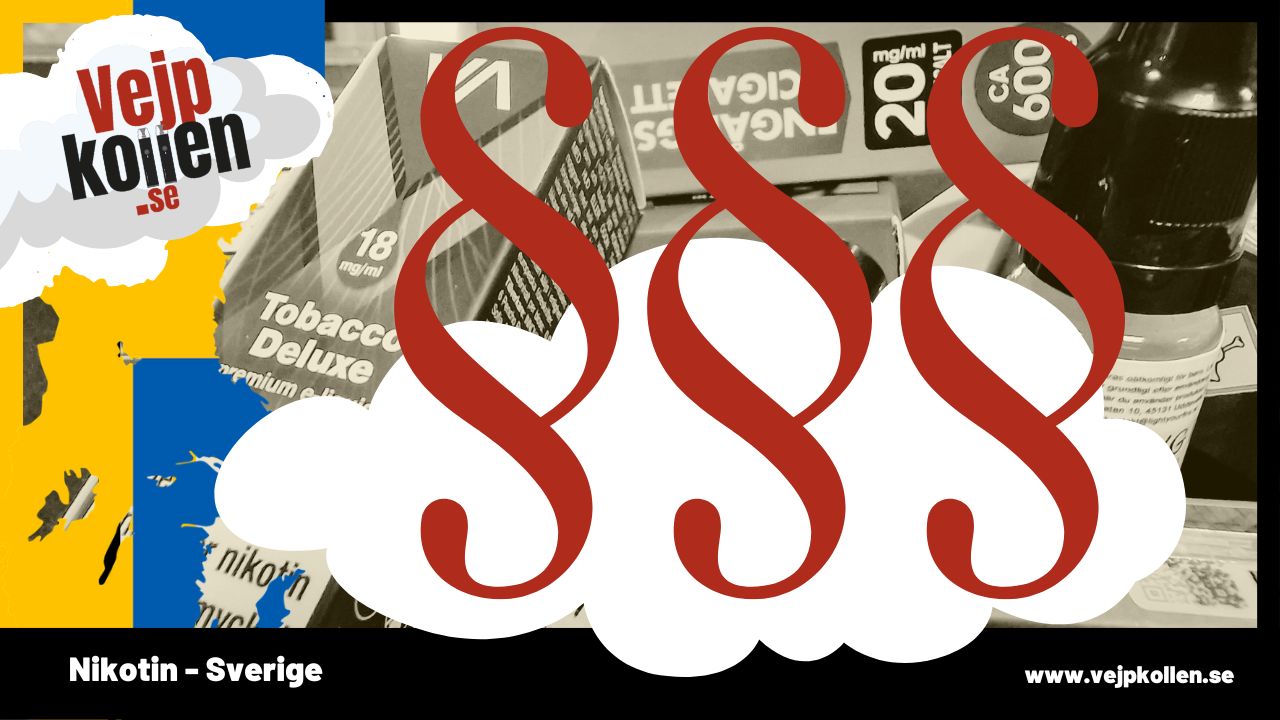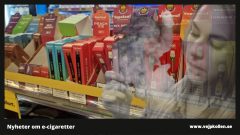The government is investigating the possibility of banning certain storage of tobacco and other nicotine products. The reason is that nicotine sales have become an important source of income for criminal organisations.
The government is investigating the possibility of regulating the storage of various nicotine products in the same way as alcohol. This is in order to tackle the illegal sale of nicotine products.
"Tobacco and nicotine products are sold both in physical stores and through e-commerce. The sale of tobacco products requires a licence to be granted. The sale of other nicotine products must be notified. In the case of tobacco products and nicotine products, there is no corresponding ban on storage as there is in the Alcohol Act. This makes it more difficult to monitor compliance with the provisions on the sale of tobacco products and nicotine products." writes the Government in its report. directives for the enquiry.
No rules on storage
Minister of Social Affairs Jacob Forssmed (kd) emphasises that the reason for the decision is that there are clear shortcomings in the current legislation.
"There is currently no regulation of the storage of tobacco and nicotine products in cases where a trader does not fulfil the requirements for selling such products. There is a storage ban in the Alcohol Act. However, it has emerged that there are problems in applying it in some cases," says Mr Snyder. Jacob Forssmed in a press release.
Tackling illegal trade
He also emphasises the importance of tackling the black market for nicotine and tobacco.
"Illegal trade in alcohol and tobacco is an important source of income for organised crime. In order to counteract this and ensure a high level of protection for both individuals and public health, we must have effective legislation in the field of alcohol and tobacco that is adapted to current conditions." Says Minister for Social Affairs Jakob Forssmed.
An already highly regulated market
Interest in the illegal sale of e-cigarettes, in particular disposable models, has increased significantly in recent years. Disposable vapes are legal to sell in Sweden, provided the products are registered and authorised under the "Act on tobacco and similar products". A disposable vape must not contain more than 2 ml of liquid and the nicotine concentration must not exceed 20 mg/ml. A retailer must, in addition to registering as a nicotine retailer in their home municipality, also have a special licence under the Chemicals Act. The authorisation covers the handling of toxic products, in particular nicotine salt, which is present in the majority of all disposable models.
Reporting illegal sales on an ongoing basis
The electronic cigarette industry association, BELC, has during the spring systematically notified online sites that sell illegal products.
"If a disposable model is marketed as having a capacity of over 1000 puffs, it is a clear sign that the tank holds more than 2 ml. In addition, it is common for the nicotine strength to be at very high levels compared to what is allowed. Those who sell such products are by definition engaging in illicit trade. I doubt that they are aware of, or care about, any regulations either" says Niklas Linder, active in BELC.
"A step in the right direction"
Several organisations in the field of harm reduction in Sweden have in the past required action to be takenr to tackle illegal sales.
"We have been warning about this for a long time. It is through the black market that young people get their disposable cigarettes. This is a relatively risk-free sale, and the authorities are not keeping up with it. Making trafficking illegal is a good start. Tackling stockpiling is another step in the right direction" says Karl-Åke Johansson, spokesperson for the consumer organisation NNA Sweden to Vejpkollen.




